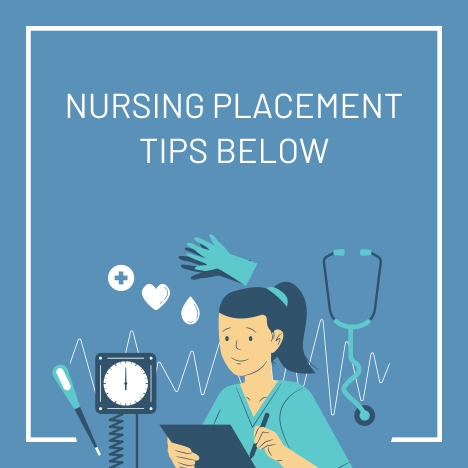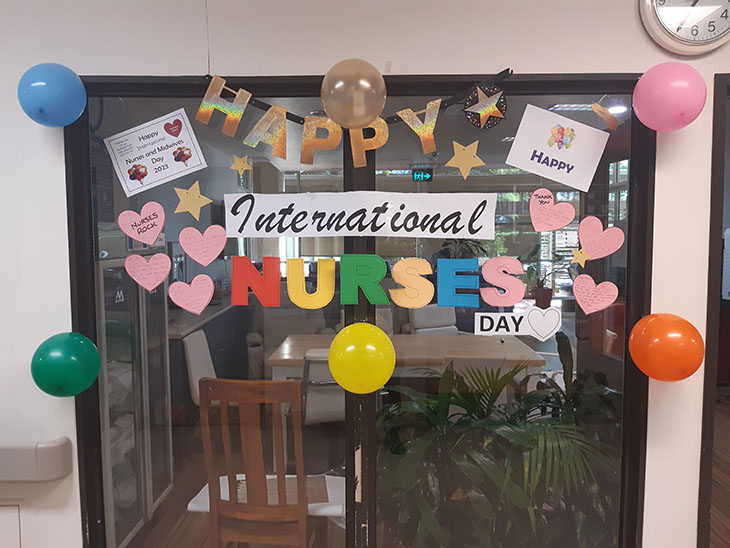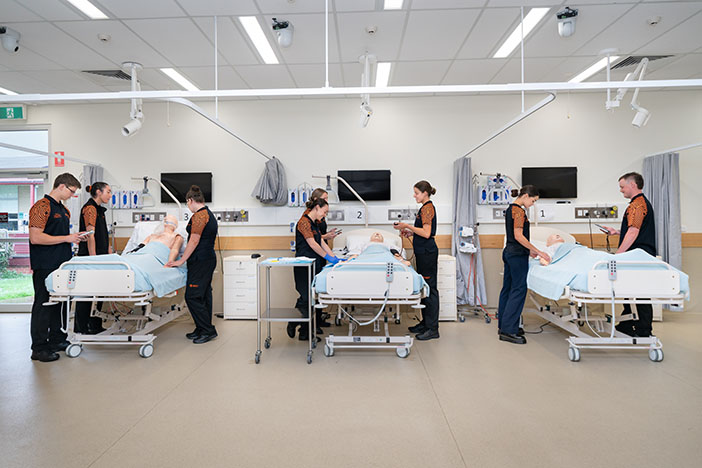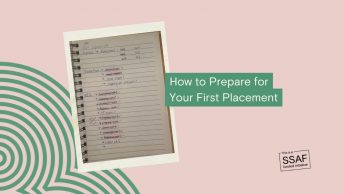Written by Trilok Bista
Did you know there are four times as many nurses in Australia than there are doctors?
Nursing is one of the most important professions. They are extremely knowledgeable and can sometimes be a shoulder to cry on!
If you’re currently a nursing student or thinking of becoming one, Trilok shares his tips on how to survive a nursing placement.

Nursing placement 101
Nursing placements as daunting as they are, provide the bulk of the real clinical learning and a genuine grasp on the workplace.
While learning from nurses and other practitioners in a professional environment is understandably confronting, with a positive attitude, willingness to learn, and being prepared to make mistakes, (because there will be a lot of that), you can take away experiences that will mould the type of nurse you will be for the rest of your career.
- Sorting Out Documentation
First year nursing will throw a lot of documentation at you that you will need to prepare as soon as possible.
From vaccinations to police checks, it can be overwhelming, but once you’re over the hill it’s pretty much smooth sailing besides the annual influenza vaccines or CPR certifications.
Remember to refer to the WPL handbook and don’t be afraid to enquire with teachers to make sure you are on top of everything.

- Receiving Placement
Usually appearing in your email, receiving your placement notification is always an exciting moment (don’t forget to check your junk/spam!).
Your Inplace website will be the go to place for information specific to the hospital or aged care facility you will be visiting.
Remember to take note of documents that the facility might upload that will give you an idea about who your placement facilitator may be, what prerequisites you are required to complete and where to meet for your orientation.
- Accommodation and Travel
Hospital allocation can be far from your preference so it’s vital to be prepared for travel and accommodation.
Hospital accommodations are convenient and sometimes cheaper than private accommodation, but make sure to contact the hospital as soon as possible as rooms run out quick.
Scholarships are also available for placements, provided by Charles Sturt or NMBA.
The Three Rivers Subsidised Placement Accommodation is another example of a scholarship for rural placements.
- Orientation
After communicating with the placement facilitator, organising your travel, and finding your accommodation, it’s time for your introduction to the facility.
Usually, your first orientation day will be short and less clinical.
Make sure you are earlier than you need to be as finding your way around parking, buildings and wards can be tricky, especially in metropolitan hospitals.
- Working on the floor
To truly get the most out of your placements, it is important to be active and engaged with the workflow.
Staying within your scope of practice, but attempt to use all your nursing skills at every opportunity.
Don’t be discouraged, because people may look down on you for being a student nurse.
All the practice you get in placement is the experience you’ll have when you take the floor as a RN.
Other students, especially in first year, may feel constricted by the limited scope of practice.
But it is important to realise the power of communicating with patients and building a rapport with them especially in busy facilities where they may not experience that from the RNs who may have countless things in their mind.
This will build your ability to communicate in an empathetic and therapeutic way.
Furthermore, building relationships with other nurses is a must.
Not only will you have a better placement experience, but you will be able to rely on them for references which will be relevant when doing your new graduate applications.

- Ending the placement successfully
Placements can be a mixed experience, whether you loved it or hated it, you have slugged through it and now you’re at the end.
Remember, to have your ANSAT completed fully and properly.
Nurses may be reluctant to fill it given their workload but it’s their obligation and your responsibility, so keep reminding them to complete it daily so that you’re on track and don’t create unnecessary stress for yourself at the end to chase them up.
It’s important to read what the nurses have written, give yourself props for the positive comments and understand what they might have flagged as needing work.
The big wave of relief that hits you after submitting your ANSAT within 10 days of when you finish your placement is an indescribable feeling.
Pat yourself on the back, remember to take your breaks and develop stress relieving activities as you may experience a lot of that in your next placement.
Ultimately, as challenging as your placements might be, there is nothing like seeing yourself grow in class, on the floor, and fitting in to your nursing uniform more and more through every placement.
And you have probably heard it a lot from your lecturers but maybe it will feel more genuine coming from a nursing student, you will get as much as you put in, so try your best, the world of nursing awaits.

Useful links.
To find out more about Charles Sturt scholarships click here.
A final note.
Thank you Trilok for sharing your experiences of completing a nursing placement. We wish you all the best with your studies.










